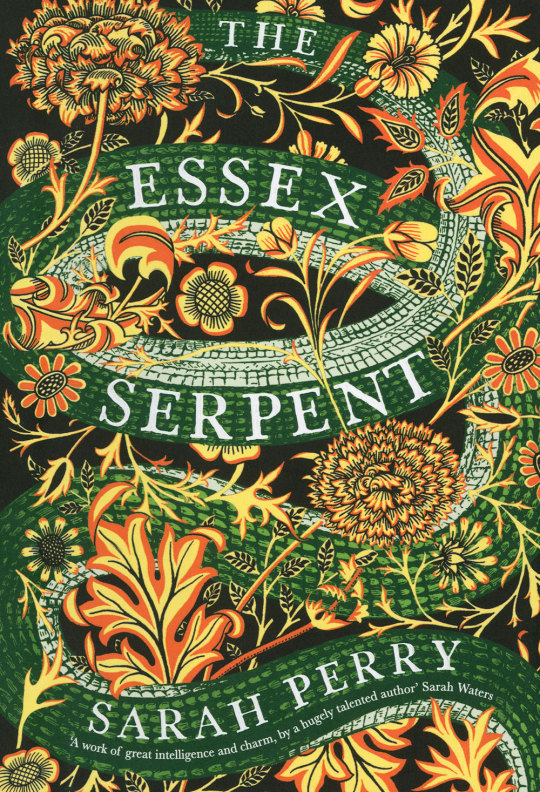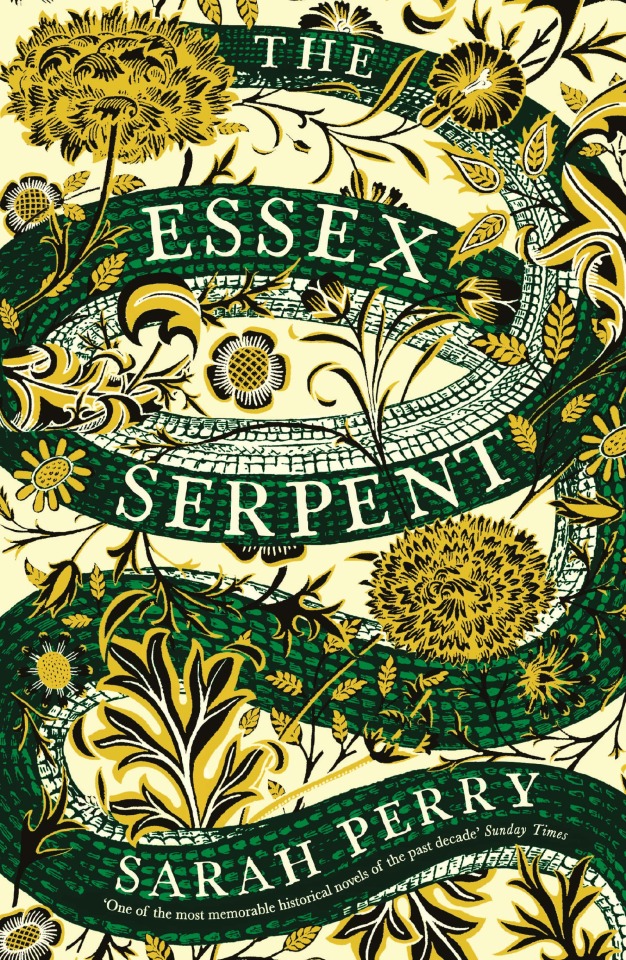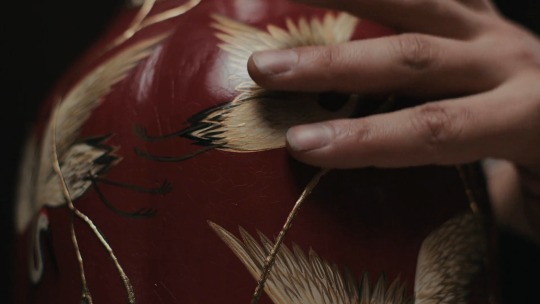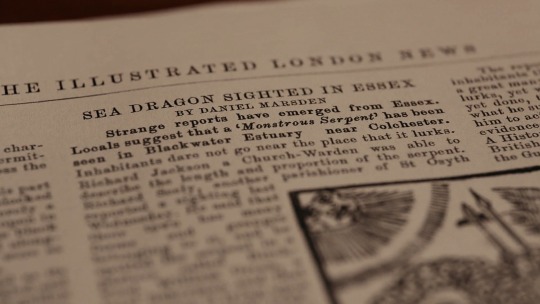#Sarah Perry
Text








The Essex Serpent (2022)
dir. clio barnard
#the essex serpent#sarah perry#costume drama#period drama#miniseries#claire danes#tom hiddleston#my gifs#mine
24 notes
·
View notes
Text
She lay against the soft green stair in the thickening dusk and fixed her eyes on his, unsurprised, daring him: he raised her shirt and found her soft belly, very white, marked with the silver lines her son had made; he kissed it once, and could not stop, and she rolled against him in delight.
Sarah Perry, The Essex Serpent
63 notes
·
View notes
Text
Books I have read in 2023. Rating out of 5 🌟
Drama
Lean Fall Stand by Jon McGregor. 🌟 🌟 🌟 🌟 🌟
Rebel Robin (Stranger Things Novel) by A.R Capetta 🌟 🌟 🌟 🌟 🌟
Runaway Max (Stranger Things Novel) by Brenna Yovanoff 🌟 🌟 🌟 🌟 🌟
The Rise of The Governor (The Walking Dead 1) by Jay Bonansinga 🌟 🌟 🌟 🌟 🌟
The Road to Woodbury (The Walking Dead 2) by Jay Bonansinga 🌟 🌟 🌟 🌟
The Fall of the Governer Part 1 (The Walking Dead 3) by Jay Bonansinga 🌟 🌟 🌟 🌟
The Fall of the Governer Part 2 (The Walking Dead 4) by Jay Bonansinga 🌟 🌟 🌟 🌟
Mrs England by Stacy Halls 🌟 🌟 🌟 🌟 🌟
The Essex Serpent by Sarah Perry 🌟 🌟 🌟
Palace Rogue by William Coles by 🌟 🌟 🌟 🌟 🌟
Romance
The Ex Hex (Ex Hex 1) by Erin Sterling 🌟 🌟 🌟 🌟 🌟
The Kiss Curse (Ex Hex 2) by Erin Sterling 🌟 🌟 🌟 🌟 🌟
Ugly Love by Colleen Hoover 🌟 🌟 🌟 🌟 🌟
Hex Appeal by Kate Johnson 🌟 🌟 🌟 🌟
The Dead Romantics by Ashley Poston 🌟 🌟 🌟 🌟 🌟
Just Like Magic by Sarah Hogle 🌟 🌟 🌟
This Christmas by Emma Heatherington 🌟 🌟 🌟 🌟 🌟
Thriller
Take Your Breath Away by Linwood Barclay 🌟 🌟 🌟 🌟 🌟
Godspeed by Nickolus Butler 🌟 🌟 🌟 🌟
Breathless by Amy McCulloch 🌟 🌟 🌟 🌟 🌟
The Shadow House by Anna Downes 🌟 🌟 🌟 🌟 🌟
Watching You by Lisa Jewell 🌟 🌟 🌟 🌟 🌟
The Girls in the Garden by Lisa Jewell 🌟 🌟 🌟
The Night She Disappeared by Lisa Jewell 🌟 🌟 🌟 🌟 🌟
I Found You by Lisa Jewell 🌟 🌟 🌟 🌟 🌟
Down by the Water by Elle Connel 🌟 🌟 🌟 🌟
Insomnia by Sarah Pinborough 🌟 🌟 🌟 🌟 🌟
Home Before Dark by Riley Sager 🌟 🌟 🌟 🌟 🌟
The Chain by Adrian Mckinty 🌟 🌟 🌟 🌟 🌟
The Island by Adrian Mckinty 🌟 🌟 🌟 🌟
Too Late by Colleen Hoover 🌟 🌟 🌟 🌟 🌟
Verity by Colleen Hoover 🌟 🌟 🌟
Fool Me Once by Harlan Coben 🌟 🌟
Mystery
The Other Mother by Michel Bussi 🌟 🌟 🌟 🌟
The Sanatorium (Detective Elin Warner 1) by Sarah Pearse 🌟 🌟 🌟 🌟 🌟
The Retreat (Detective Elin Warner 2) by Sarah Pearse 🌟 🌟 🌟 🌟 🌟
The Christmas Killer (DI James Walker 1) by Alex Pine 🌟 🌟 🌟
Killer in the Snow (DI James Walker 2) by Alex Pine 🌟 🌟 🌟 🌟 🌟
The Winter Killer (DI James Walker 3) by Alex Pine 🌟 🌟 🌟 🌟 🌟
Darkness on the Edge of Town (Stranger Things Novel) by Adam Christopher 🌟 🌟 🌟 🌟 🌟
Silent Cry (Detective Gaby Darin 1) by Jenny O' Brien 🌟 🌟 🌟
Deal Breaker (Myron Bolitar 1) by Harlan Coben 🌟 🌟 🌟 🌟 🌟
Drop Shot (Myron Bolitar 2) by Harlan Coben 🌟 🌟 🌟 🌟 🌟
Fade Away (Myron Bolitar 3) by Harlan Coben 🌟 🌟 🌟 🌟 🌟
Coffin Road by Peter May 🌟 🌟 🌟 🌟
The Cove by L.J. Ross 🌟 🌟 🌟 🌟
Horror
This House Is Haunted by John Boyne 🌟 🌟 🌟 🌟
The Whistling by Rebecca Netley 🌟 🌟 🌟
Haunted by James Herbert 🌟 🌟 🌟 🌟
#books#book recommendations#book rec list#colleen hoover#erin sterling#ashley poston#the walking dead#stranger things#sarah pinborough#linwood barclay#harlan coben#sarah perry#sarah pearse#lisa jewell#anna downes#stacy halls#adrian mckinty#john boyne#william coles#emma heatherington#nickolus butler#sarah hogle#jon mcgregor#lj ross#peter may#james herbert#rebecca netley#riley sager#amy mcculloch#kate johnson
3 notes
·
View notes
Quote
There are a couple of reasons why science might deserve to be epistemically privileged by an attitude of non-questioning. First, if scientists themselves were questioning one another’s ideas behind the scenes, this might reduce the need for outsider distrust. However, in the field of priming and likely in many other fields, researchers seem to have been engaged in an improvisational game of accepting results as true without question. A field in which it is rude or unusual to challenge the findings of others, especially facially goofy findings, has little claim to have its results trusted by outsiders.
Second, if there are obvious real-world effects of a scientific claim, like airplane travel and high-speed internet, an unquestioning attitude is probably appropriate. This does not seem to be the case for the inexact sciences. There is no technology that implements the results of these priming studies as a load-bearing component. We can’t look out into the world and see undeniable proof of the truth of priming effects. Priming exists mostly as words and figures in papers, with at best metaphorical application to the everyday world.
It seems doubtful that fields like psychology will effectively reform themselves. The institutions that benefit from the unquestioning attitude are unlikely to take measures to dig out the rot, because they realize that they are mostly made of rot. Even when insiders are motivated to change, it is not clear that traditionally scientific methods in the social and inexact sciences are even possible. So what can be done? Rather than attempting to reform scientific fields from outside (especially the science of social and psychological abstract nouns), what is within the control of the individual is to change the immediate response of trust.
Sarah Perry, How trust undermines science
11 notes
·
View notes
Video
youtube
THE ESSEX SERPENT - Behind The Scenes Talk With Tom Hiddleston, Claire Danes, Jamael Westman & More
93 notes
·
View notes
Text



Title: The Essex Serpent
Author: Sarah Perry
Genre/s: historical
Content/Trigger Warnings: emotional and physical abuse, implied death by drowning, implied death in childbirth, implied sexual harassment
Summary (from author's website): London, 1893. When Cora Seaborne's controlling husband dies, she steps into her new life as a widow with as much relief as sadness. Along with her son Francis - a curious, obsessive boy - she leaves town for Essex, in the hope that fresh air and open space will provide refuge.
On arrival, rumours reach them that the mythical Essex Serpent, once said to roam the marshes claiming lives, has returned to the coastal parish of Aldwinter. Cora, a keen amateur naturalist with no patience for superstition, is enthralled, convinced that what the local people think is a magical beast may be a yet-undiscovered species. As she sets out on its trail, she is introduced to William Ransome, Aldwinter's vicar, who is also deeply suspicious of the rumours, but thinks they are a distraction from true faith.
As he tries to calm his parishioners, Will and Cora strike up an intense relationship, and although they agree on absolutely nothing, they find themselves at once drawn together and torn apart, affecting each other in ways that surprise them both.
The Essex Serpent is a celebration of love, and the many different shapes it can take.
Buy Here: https://bookshop.org/p/books/the-essex-serpent-sarah-perry/7213198
Spoiler-Free Review: On the surface, this book is a beautifully deep and detailed historical novel, with all the right period details. It’s also a bit of a mystery/horror novel, with all those tiny nods to the (historical) legend of the Essex Serpent and the touches of folk horror in how the people of Aldwinter talk about it and deal with it.
But at its core, it's all about the characters, who are all quite complex and layered in their portrayals. None of them fits into any sort of stereotype one might find of them in Victorian novels: Cora isn’t necessarily the typical widow (merry or otherwise), William isn’t the typical parson, Martha isn’t the typical lady’s companion, etc. Each character has an idea of what the other characters are like before meeting them, then another idea of what they’re like after meeting them. That idea changes throughout the course of the novel as the plot plays out - a plot that is largely driven by the way the characters interact with each other. There’s a kind of ripple effect: one character takes some kind of action (or doesn’t), and the effects of their action or inaction affects the other characters, to a greater or lesser degree. This is what makes the characters - and the novel - enjoyable to read.
This dynamic is clearest with Cora and William. Initially they have some negative ideas about what the other is like, but when they finally meet each other in person those ideas change, and become more positive. But as the novel goes on, it becomes clear that though they get along and agree on a lot of things, there’s also plenty of things they DON’T agree on - but that just makes them more interesting to each other, more enjoyable to be around. This creates an interesting push-and-pull between them, that ripples out onto the other characters. Those characters, in turn, react to that dynamic, and their reactions spark similar reactions in other characters, including Cora and William.
Of course, none of these dynamics would be interesting if the characters themselves weren’t interesting on their own. As I mentioned earlier, none of the characters are stereotypes, but some are, I think, a bit more interesting than others - largely because of how they shine a light on aspects of British Victorian history that might not always be made obvious in other media based on the time period. The most obvious example here is Martha: her socialist politics provide a refreshing contrast to the politics of the other characters, but her sapphic-coded relationship with Cora, and her more complicated, politically-slanted relationship with Spencer, also add angles and layers to her that are not always visible in media and literature about the Victorian period.
But where does this leave the Essex Serpent itself, and its story? While it’s still a presence in the novel, and is the reason why all the characters come together in the first place, it’s really more of a symbol than any kind of actual threat. In that sense it can be viewed in many different ways, but the one I lean more towards is that it is a symbol of making assumptions, and disillusionment: two things all the characters undergo, for better and for worse.
So overall, while some readers might come to this novel expecting something in the horror or gothic vein (like I did, initially), they’ll quickly come to learn that this really is a story about the characters in it, and how they interact with and react to each other, than about any supposed monster lurking in the river. While this might be disappointing to some readers who were looking for a scarier read, others might find themselves unexpectedly delighted by the novel’s character-heavy focus and the author’s wonderful prose.
Rating: five blue stones
2 notes
·
View notes
Text

After Me Comes the Flood, Sarah Perry
#about me#books#sarah perry#after me comes the flood#i am already highlighting a LOT of this one#quotes#feels
6 notes
·
View notes
Text


#When you hyperfixate on a show about a creepy big snek only because your celebrity crush is in it#tom hiddleston#the essex serpent#two tom hiddleston memes in a week?? its more likely than u think#will ransome#cora seaborne#dr garett#luke garrett#stella ransome#sarah perry#claire danes
49 notes
·
View notes
Photo

Spring Scavenger Hunt! I was tagged by @bibliophilecats to find:
A book that starts with S: Sense and Sensibility, Jane Austen
A book with birds on the cover: Flights, Olga Tokarczuk
A book with insects on the cover: ignominious failure
A book with flowers on the cover: Songs of Triumphant Love, Jessica Duchen (more obscure than it deserves to be!)
A book that takes place at spring time: The Essex Serpent, Sarah Perry (in on a technicality, maybe, but more than half of it does, and the changing of seasons is so important!)
Tagging in usual non-exclusive, non-obligatory fashion: @qqueenofhades, @lettersfromthelighthouse, @tinydooms, @agardenandlibrary
38 notes
·
View notes
Text










Objects and things in the first episode of The Essex Serpent.
#the essex serpent#the essex serpent episode 1#the essex serpent 1x01#objects#shots#direction of photography#tv show#apple tv#beauty#sarah perry
32 notes
·
View notes
Text
dailymotion
The Essex Serpent - From the page to Screen | Dailymotion
The Essex Serpent - From the Page to Screen - Promo Trailer HD - Witness how writer Anna Symon brought author Sarah Perry’s imaginary world to life in The Essex Serpent, now streaming on Apple TV+
Set in Victorian England featuring a star studded cast led by Claire Danes, Tom Hiddleston, Frank Dillane, Clémence Poésy and Hayley Squires, The Essex Serpent follows London widow Cora Seaborne (Danes) who moves to Essex to investigate reports of a mythical serpent. She forms surprising bond of science and skepticism with the local vicar (Hiddleston), but when tragedy strikes, locals accuse her of attracting the creature.
42 notes
·
View notes
Text

In case y’all forget who the real king of period drama husbands of 2022 is.
Men- in a world of William Ransomes, be a George Russel.
#period dramas#the gilded age#the gilded age hbo#george russell#bertha russell#george x bertha#george russell x bertha russell#Stella Ransome#memes#all my real homies hate William Ransome in this house#yes Tom Hiddleston is gorgeous#but I will never stop hating this character#the Essex serpent#apple tv#morgan spector#Tom hiddleston#julian fellowes#Sarah perry
43 notes
·
View notes
Text
He felt his faith deeply, and above all out of doors, where the vaulted sky was his cathedral nave and the oaks its transept pillars: when faith failed, as it sometimes did, he saw the heavens declare the glory of God and heard the stones cry out.
Sarah Perry, The Essex Serpent
#book quotes#sarah perry#the essex serpent#books and libraries#nature#walking in nature#literature#books and reading
17 notes
·
View notes
Link
‘Quick, somebody get Hiddleston a Hobnob! And sharpish — because he hasn’t a second to spare. It’s early May in North London, and the actor has generously agreed to share one of his rare days off at the pub with Gentleman’s Journal...
Except there aren’t any Hobnobs. And these iconically British biscuits, the actor tells us, are among the things he misses most when working abroad. Coupled with dog walking, West End theatre and the reassuringly dulcet tones of BBC Radio, the humble Hobnob is a cosy allegory for everything he loves about London — and the green and pleasant land that lies beyond.
...the actor has had a busy time of things of late, and his precious days of rest have been few and far between. Next week, he heads back to set to begin production on the second season of the masterfully mischievous Loki. He can currently be found starring in The Essex Serpent...And he’s just been revealed as the lead of yet another new drama series for Apple. So, while the actor has certainly earned some time off, he doesn’t seem to be getting any.
And yet, for just these few fleeting days, Hiddleston is happy kicking back and enjoying being home. So unwind with us, savour this dash of downtime, and savour the actor’s many wisdoms and witticisms. Because, whether you want marvellous Marvel secrets or you’re hoping for stories of his 2017 Hamlet, there’s something for everyone when you hobnob with Tom Hiddleston…
TH: I do miss chocolate Hobnobs. And, yes, BBC Radio. Also, now more than ever, I miss the land and the air in Britain. The smells and the sounds of the parks and the country in every season. The way the birds change their tune and routine. The feeling, when you’re home, of knowing the way. The coming of spring and early summer in London every year is a joy — every time. The streets here now have layers of memories too. As life goes on, those small familiarities are a comfort.
And my Sundays. Now, Sundays are for all the things there wasn’t time to do in the week. An extended run, a walk with the dog, an afternoon film, planning the coming week and trying not to go mad. Pubs were a part of my social life when I was younger, but not so much now. And that’s nothing to do with the pubs, more to do with life getting fuller.
Hiddleston will, however, always make time for reading. Many of his most lauded roles — from The Night Manager‘s Jonathan Pine to High-Rise’s Dr. Robert Laing — took their first breaths on the page. The actor even embodied The Great Gatsby author F. Scott Fitzgerald in 2011’s incandescent Midnight in Paris. But, whether it’s J.G Ballard or John le Carré, the bookshelf still looms large, and remains a surefire way to stoke Hiddleston’s imagination.
TH: I am more of a reader now than I used to be. Books are new worlds to be explored, learned about and understood. I buy, and am gratefully given, books at a rate faster than I can read them. There is still much I don’t know, and want to know, and reading can be a way into the minds of others. I didn’t really have an angsty go-to novel as a teenager, but I read Tolstoy’s Anna Karenina when I was twenty-one and was (am still) blown away. I find Levin’s journey extremely moving. It will never get old.
Hiddleston’s next project, The White Darkness, will adapt the true, tragic tale of British explorer Henry Worsley. It’ll stream on Apple TV+, where the similarly sorrowful The Essex Serpent is currently courting Emmy attention for the actor. To bring Sarah Perry’s bestselling gothic romance to the small screen, Hiddleston slips on the clerical collar of troubled vicar Will Ransome — a shrewd-but-subtle performance that, whilst well worth a watch on your next day off, the actor says stems from the script and novel.
TH: I read it over Thanksgiving in 2020, and had a week left on Loki. I was in America, so we had four days off. And I knew that Clio [Barnard, BAFTA-nominated director of The Arbor] was directing it. I just read all six scripts and I genuinely thought that they were brilliant and deep and complex. And Clio sent a beautiful letter with it, about Will and all the things he was wrestling with. It just seemed new and rich and I wanted to do it.
While we were filming, walking along the beach, I actually had the book with me. And I kept suggesting that we put things back, lines from the book. Perhaps that wasn’t always that helpful. But there was a line from the book that we did end up putting in the series, where Will’s trying to explain how he ended up on the east coast of Essex. And he says: “What I wanted was purpose, not achievement. Do you see the difference?”.
And I remember thinking that was just extraordinary. It really resonated with me, this need for purpose. Because purpose is so releasing, it’s a kind of freedom.
The show itself was also something of a release for Hiddleston, who relished the return to British soil after a slew of stateside projects — including the ongoing Avengers franchise, Kong: Skull Island and the Hank Williams musical biopic I Saw the Light (another of our day-off Hiddleston recommendations; he does his own singing). But The Essex Serpent’s exploration of religion also appealed to the actor; worship is not in his wheelhouse.
TH: Inhabiting Will’s faith felt like a really new challenge, and I really wanted this to be a portrait of a complex man — someone who wasn’t constrained by an easy definition — and the journey that he goes on. I was raised in London, in the United Kingdom, and I was very much raised in the Judeo-Christian inheritance of Western Europe. I went to chapel at school and I was, of course, aware of the meaning of Christmas and Easter, and the Christian tradition.
And, when I was at school, I did religious studies. But I also did biology. And, while we studied the Old Testament and the New Testament, we’d also study Darwin and the theories of evolution. As a young person, for me, Darwin was completely accepted as a way of explaining life. So I kept having to remind myself, on The Essex Serpent, that these ideas were new for these characters — they were fresh ideas that were challenging the status quo. And they were not only challenging what people believed, but also how they found meaning in their lives.
And, in the last five years, this idea of where we derive meaning in our lives has certainly been one that I can relate to. Because I’m in the middle of my life — perhaps I’m even further into my life than the middle. As a 41-year-old, I know that I’ll be fortunate if I get another 40. I’d be among the lucky ones. And I think we all deeply need our lives to have meaning. So, looking for it, or searching for a source of it, has certainly been something that has resonated with me. And inhabiting Will and his faith — the combination of his intellect, heart, mind and soul — and what he chooses to believe, this led to an openness, and a desire within myself to understand and connect.
I think curiosity is the key to all of it. It’s a vital engine in life — just to keep looking, to keep searching. And, if you can, to fearlessly ask questions. Because fear closes the mind; curiosity keeps it open.
And Hiddleston is nothing if not curious. Whether braving the viper’s nest of religion for The Essex Serpent or excoriating class and corruption in 2015’s High-Rise, the actor’s roles have frequently been characterised by big, bold ideas. And nowhere does he conjure up these principled performances more confidently than on stage.
He could be embodying vengeance in Coriolanus or wrangling with morality as Othello’s Cassio (a turn which reportedly won him the role of Loki in Thor), but Hiddleston has always best succeeded in unknotting the Bard’s tangled and tortuous emotions when face-to-face with an audience. The actor’s Hamlet, at the Royal Academy of Dramatic Art in 2017, remains one of the most scintillating Shakespearean performances of the last decade. There’s a rumour he even knows the play by heart.
TH: Not all of Hamlet! Some of it is definitely still in there, but I don’t think that’s singular or unique to me. I think, perhaps, once you have learned or played Hamlet, that it stays with you forever. The poetic clarity and profundity of those words: about grief, the vulnerability of the soul and the experience of being alive. It doesn’t get much deeper than that.
So, yes, I can recite some of it, if pressed. I was once invited as a guest onto The Late Show with Stephen Colbert — who is classically trained himself — and in the middle of the show’s planned segment we found ourselves in an impromptu Hamlet tennis rally of ‘To be, or not to be’. I could tell he was challenging me, in the most good-natured way, to see if I really knew it. I hope it was an entertaining rally. Shakespeare was the winner.
Since his Hamlet, Hiddleston’s theatre work has been comparatively rare. A run of Harold Pinter’s Betrayal gave the actor his Broadway debut in 2019 — and introduced him to his now-fiancée, fellow actor Zawe Ashton. Tonight, the couple are heading to the National Theatre to enjoy a new adaptation of Small Island. As for his own return to the stage? The hard-pressed Hiddleston’s schedule may not allow it for some time.
TH: I’d love to do more theatre. I don’t know when that may be — but I hope I always will want to. Let’s see what transpires. There’s always fun to be had in reviving classical work. I find that so rewarding. When you’re having a conversation through time, when there are certain moments in plays that have endured, when they continue to resonate in surprising ways — that’s when you realise why these pieces of art have endured. There’s something timeless inside them; what’s being explored about the human condition. And discovering them anew is always, I find, a genuine joy.
But there are also occasional pieces of new writing that seem to capture the moment. And I’ve done less of that, to be honest. I haven’t done much of that at all. But let’s see what comes around. It would be nice to be in a theatre again. It’s that thing of doing anything live, where the audience is as much a part of the performance as the performers.
Theatre may always hold a place in Hiddleston’s heart, but the last decade of the actor’s career has been dominated by a single, slicked-back, slyly pitched performance — Loki, God of Mischief. A recent revival series for the Marvel character has generated even more Emmy buzz than The Essex Serpent — a handsome pay-off for a character Hiddleston has already played in eight separate projects (and counting). And, while the actor is remarkably dissimilar to the wisecracking trickster in real life — more ‘low-key’ than Loki — he reveals that the comic-book creation bestowed upon him the most profound moment of his professional career so far.
TH: On the last day on set of Loki‘s first season, after the very last shot, we all, without instruction, seemed to stand in a circle — with nowhere to go, with the job done, and clapped. It’s hard to describe the feeling of relief, of the gratitude we felt for each other, for every member of our cast and crew. Filming had been interrupted by the onset of the Covid-19 pandemic one third of the way into our planned schedule — we locked down for five months — and we restarted after that first hiatus to resume exactly where we had left off, and to finish the story.
For the next twelve weeks, everyone working on Loki was in a contained bubble. And finishing those last months was, for most of us, during that time, our only human contact. On that last day, we had made it through the pandemic and told our story, before any vaccine against Covid-19 had been made available, and with a company, a cast and crew, who — in my experience — supported each other with a spirit, care and kindness in a way I have never seen before. ‘Whatever happens to this series’, I thought, ‘whichever way it goes, the making of it was meaningful. There is meaning in the doing’.
Of course, not every project can sing with such glorious purpose. And, whether voicing an Aardman claymation character in Early Man or reading the CBeebies Bedtime Story (Hiddleston told the tale of a benevolent crime-fighting spud named Supertato), many of the actor’s more recent appearances show off his playful side; not the cerebral, hard-lined Hiddleston of his many movies, but rather the casual, whimsical Hiddleston who joins us at the pub today.
But that’s a mean measure of the man’s acting ability; that he could raise chills in Guillermo del Toro’s Crimson Peak and share a scene with Kermit the Frog within the space of two years (Hiddleston says the Muppets offer remains the most surreal phone call he has ever received, in “prospect and reality”). But having honest fun, whether that be with Shakespearean superheroics or a guest spot on The Simpsons, seems key to the actor’s process. There’s even, would you believe, a signature Hiddleston dance move.
TH: Good heavens. Yes. I always used to do a sort of manic double-time hopscotch thing. I have never called it that until today. I sort of jump my legs out past my hips, and then jump back, one leg crossed in front and one behind. It looks absolutely as mad as it sounds.
I don’t know where it started. It ended up in a scene in Shakespeare’s Cymbeline on stage at the Barbican many years ago, in a montage in Ben Wheatley’s High-Rise, and in an appearance on Alan Carr’s Chatty Man in 2013, which I’m told resurfaced recently on somewhere on TikTok, which I am too old to understand.
When next the ‘manic double-time hopscotch’ might emerge, Hiddleston doesn’t know. But, with such a motley mix of upcoming projects in the pipeline, the actor isn’t altogether sure where he’ll end up, either. For now at least, he’s just happy to be back in Britain, relishing every precious day off, sun-soaked dog walk and Hobnob that comes his way. Because, for Hiddleston, there’s no place like home.
TH: It’s a spectacular country, but I forget that. And it’s really interesting — when I was younger, I wanted to travel all the time. I wanted to travel to Europe, I wanted to travel all over the world if I could. To America. But I think that’s maybe just the nature of being young. I wanted to see as many different places as I could. And I found that travelling broadened the mind, opened your horizons. It was expansive, it was new. And, in work, I was so fortunate that I got to travel all the time.
And it’s only more recently — since I’ve come back — that these islands are so unexplored by me. I’d seen certain cities I suppose, but there were places I hadn’t spend much time, didn’t know very well, and have been so surprised by. I find it very humbling. The happiest times in my life are when I’ve been humbled by nature; when I feel folded into it. There’s nothing better than feeling small in a natural environment that has majesty to it. For me, there’s nothing in the world bigger or more profound. It’s vital.’
#Tom Hiddleston#The Essex Serpent#Loki#The White Darkness#Apple TV+#Kong: Skull Island#Coriolanus#Hamlet#Othello#High Rise#The Night Manager#Sarah Perry#John Le Carre#Betrayal#Zawe Ashton
27 notes
·
View notes
Quote
Another way to skillfully exit the unquestioning mode is to imagine what else would be true if the claim were true. For example, if the Bargh walking speed priming effect were real, our walking speeds would be constantly changing in response to subtle cues (as opposed to being mostly determined by physiology and walking surface). Seeing a billboard for denture cream could make you late for work. You could use it in military applications to slow down the enemy. This is a variation on the as-if game: Jump out of the unquestioning attitude by trusting the claim way too far and thinking through the implications. Once you start asking how the abstractions are cashed out and what the implications of the claim would be, you may begin to notice questions like: How big is the effect? Would I be able to notice it in real life? Is there other research that says the opposite? Is there other research that says that the whole abstraction is a huge mess? That is the beginning of the end of the unquestioning attitude. Questions like these are part of science, and asking them is more respectful to true science than unquestioning trust.
Sarah Perry, How trust undermines science
9 notes
·
View notes
Text
Finished the adaptation of The Essex Serpent and I am not satisfied (book spoilers below)
What a disappointment it turned out to be in the end. Beautifully filmed (the sea-green/blue/brown colour palette is very aesthetically pleasing), but falls flat compared to the book, especially the ending. The main romance feels superficial and underdeveloped - what is friendship and kinship turned love in the book, here just looks like another “they met and quickly were magically drawn to each other” story. Most other dynamics have suffered too, and that's in a deeply character-driven story. (The relationship of Luke & Martha was done the best, in my opinion, so at least there’s that). And the ending! What I loved about the ending of the novel is how it shows that sometimes you don’t end up with the person you’re in love with and that’s okay, that doesn’t mean you can’t be happy, because you can still have love in the form of family or friendship or doing the job you love. And in the show... well, the main couple got together, and everyone else is okay or something. Boring.
Also, they didn’t even include my favourite scene :( This book, while good, is not among my absolute favourites, and yet there is one scene that is THE scene for me. Fucked me up when I was reading it, rent free in my brain, and so on, and they didn’t even include it. Yes, I’m talking about Luke attempting suicide and getting mad at himself for being unable to go through with it because it would break Spencer’s heart.
18 notes
·
View notes